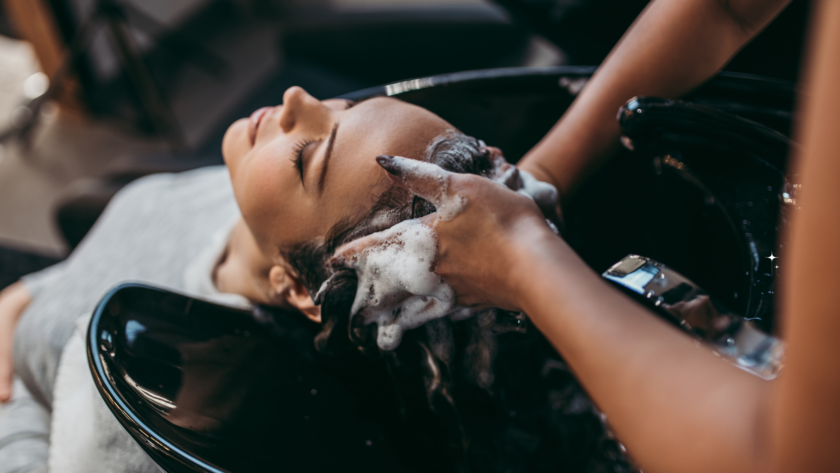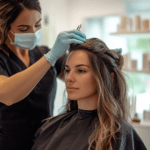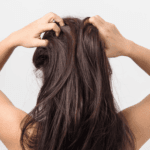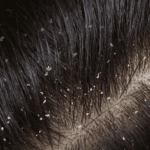Dry scalp can be an uncomfortable and persistent condition, often characterized by itchiness, flakiness, and irritation. While it may seem like a minor inconvenience, untreated dry scalp can lead to more severe issues, including dandruff, soreness, or even hair loss. This guide explores everything you need to know about dry scalp, from its causes and symptoms to effective treatments and home remedies.
Contents
What Is Dry Scalp?
Dry scalp occurs when the skin on your scalp lacks sufficient moisture, leading to dryness, flakiness, and itching. It is a common condition that affects people of all ages and can range from mild to severe.
While the symptoms may overlap with other scalp conditions, such as dandruff or psoriasis, dry scalp is primarily caused by a lack of hydration in the skin.
Symptoms of Dry Scalp
Common symptoms of dry scalp include:
- Persistent itchiness
- White flakes of dead skin
- Redness or irritation
- Tightness or discomfort in the scalp
- Hair that appears dull or brittle
If left untreated, dry scalp can worsen, leading to soreness, inflammation, or even infections.
Common Causes of Dry Scalp
Several factors can contribute to a dry scalp, including:
Environmental Factors:
- Cold, dry weather
- Excessive exposure to central heating or air conditioning
Hair Care Practices:
- Over-washing hair
- Using harsh shampoos or styling products
- Exposure to hot water during showers
Medical Conditions:
- Eczema (Atopic Dermatitis): Causes red, itchy patches on the scalp.
- Psoriasis: Leads to the buildup of skin cells, causing dryness and flaking.
- Dandruff: Often mistaken for dry scalp but caused by excess oil or a yeast-like fungus.
Lifestyle Factors:
- Dehydration
- Poor diet lacking essential nutrients
Allergic Reactions:
- Sensitivity to hair care products or their ingredients
Effective Treatments for Dry Scalp
The treatment for dry scalp largely depends on its underlying cause. Below are some of the most effective options:
Medicated Shampoos
Using a medicated shampoo designed to treat specific scalp conditions can provide relief. Options include:
- Pyrithione Zinc Shampoos: Have antifungal and antibacterial properties.
- Salicylic Acid Shampoos: Help exfoliate dead skin cells.
- Ketoconazole Shampoos: Target fungal infections.
- Coal Tar Shampoos: Slow down skin cell turnover.
Prescription Medications
For severe cases, a dermatologist may recommend:
- Corticosteroids
- Antihistamines
- Biologic medications
Moisturizing Treatments
- Use deep-conditioning treatments to replenish scalp hydration.
- Apply natural oils like coconut oil or jojoba oil to lock in moisture.
Light Therapy
For conditions like psoriasis, light therapy can reduce inflammation and skin cell buildup.
Home Remedies for Dry Scalp
Natural remedies can be highly effective for managing dry scalp symptoms. Here are some tried-and-tested options:
Coconut Oil
Known for its moisturizing and antifungal properties, coconut oil can hydrate the scalp and reduce dryness. Massage a small amount into the scalp, leave it for 30 minutes, and rinse.
Aloe Vera
Aloe vera has anti-inflammatory and moisturizing properties. Apply fresh aloe vera gel to your scalp, let it sit for 20 minutes, and rinse thoroughly.
Apple Cider Vinegar
This natural antimicrobial can restore the scalp’s pH balance. Mix equal parts apple cider vinegar and water, apply to the scalp, and rinse after 10 minutes.
Tea Tree Oil
Add a few drops of tea tree oil to your shampoo to leverage its antifungal and antibacterial benefits.
Baking Soda and Olive Oil
This combination exfoliates and moisturizes the scalp. Mix 1 tablespoon of baking soda with 2 tablespoons of olive oil, apply, and rinse after 15 minutes.
Yogurt and Eggs
Yogurt soothes and exfoliates, while eggs provide nourishment. Combine and apply to the scalp for a hydrating treatment.
Avocado
Rich in healthy fats, avocado or its oil can deeply moisturize the scalp. Mash an avocado and apply it directly to your scalp.
Preventing Dry Scalp
Preventive measures can help you maintain a healthy scalp and avoid dryness:
- Limit hair washing to 2-3 times a week.
- Use lukewarm water instead of hot water.
- Opt for gentle, sulfate-free shampoos.
- Stay hydrated and consume a balanced diet.
- Protect your scalp from extreme weather by wearing a hat.
When to See a Doctor
While home remedies and over-the-counter treatments can address most cases of dry scalp, consult a dermatologist if you experience:
- Persistent or worsening symptoms
- Severe redness, cracking, or bleeding
- Hair loss
Frequently Asked Questions (FAQ)
How can I tell the difference between dry scalp and dandruff?
Dry scalp is caused by a lack of moisture, resulting in small, dry flakes. Dandruff, on the other hand, often produces larger, oilier flakes due to excess oil and fungal activity.
Can dry scalp cause hair loss?
Yes, persistent scratching from dry scalp can lead to hair breakage and temporary hair loss.
Is dry scalp a permanent condition?
No, dry scalp is usually manageable with proper care and treatment. However, underlying medical conditions like eczema or psoriasis may require ongoing management.
Are natural remedies safe for sensitive skin?
Most natural remedies are safe, but it’s essential to do a patch test before applying them to your scalp to avoid allergic reactions.
Conclusion
Dry scalp is a common but treatable condition. By understanding its causes and implementing effective treatments, you can restore your scalp’s health and comfort. Whether you opt for medicated shampoos, natural remedies, or a combination of both, consistency is key to achieving long-lasting results. If symptoms persist, consult a dermatologist for personalized care.



